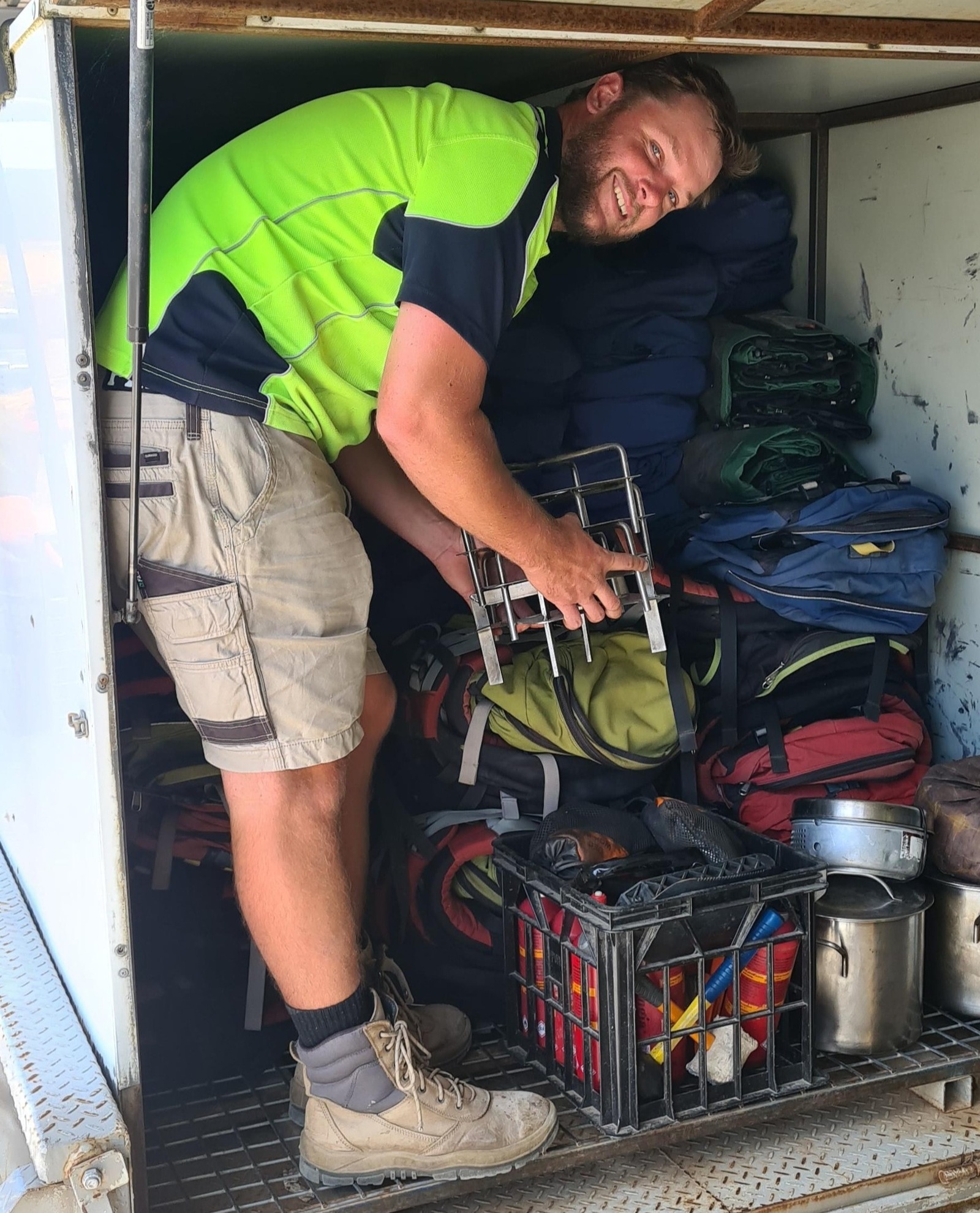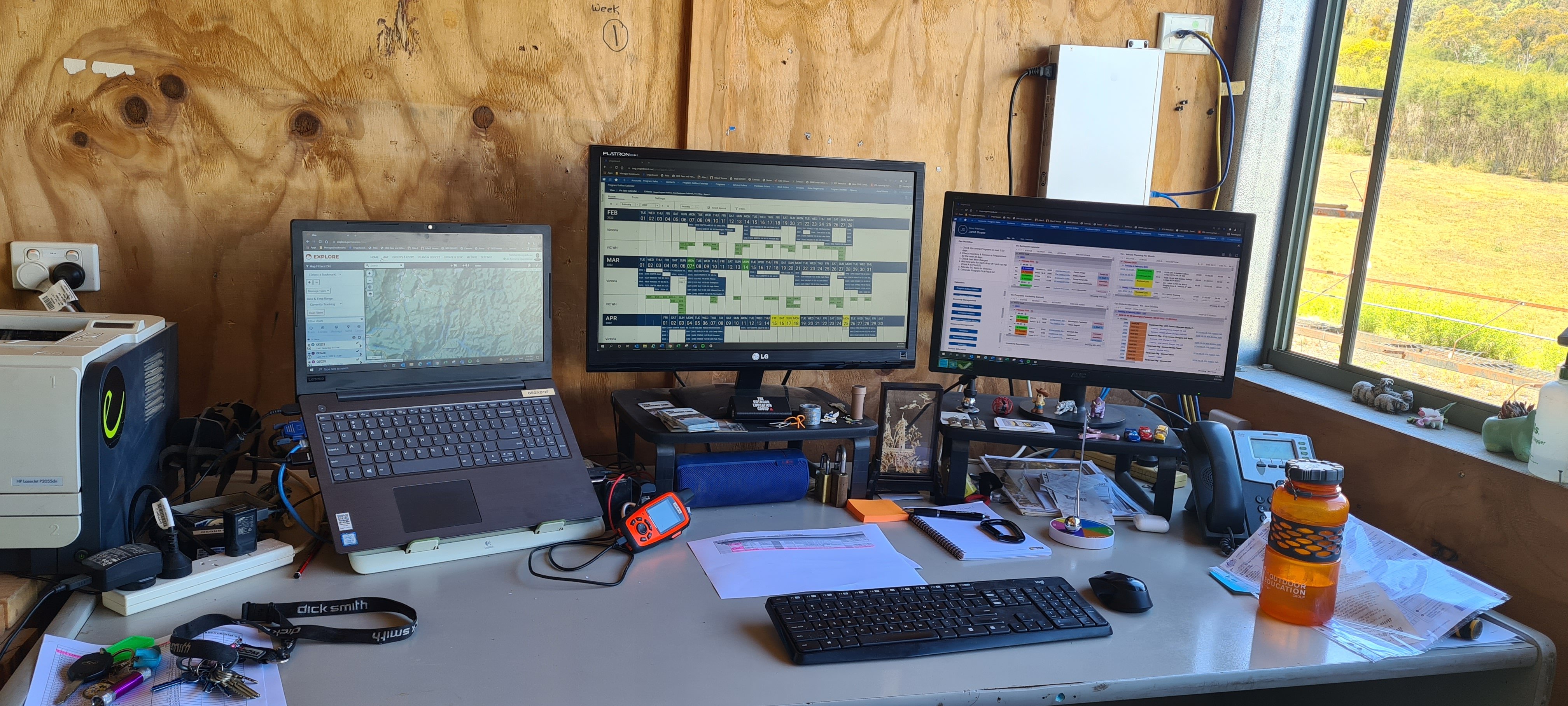There’s a lot of behind the scenes planning and preparation to deliver exceptional outdoor education programs. Without a committed Logistics and Operations team, we would not be able to continue on our mission of sharing the outdoors and empowering all young people. The Outdoor Education Group's Victorian Operations and Logistics Coordinator, Jared Sloane has been with us for 6 years. Jared is an expert organiser and is part of the team ensuring every program hits the ground prepared for the adventure ahead.
WHAT ARE YOUR RESPONSIBILITIES?
The team and I make sure all programs leave fully prepared. We must be across what each program requires in order to be successful - gear, equipment and vehicles - ensuring all those supporting elements are serviced, cleaned, packed and ready to go.
Course Coordinators create a packing list for us to follow, including equipment and gear numbers, gear sizes, locations, times and dates. Depending on the program, some of the equipment and gear we may have to prepare includes climbing shoes, backpacks, helmets, paddles, personal flotation devices (PDFs), canoes, bicycles, gaters, over gear (rainproof jackets and pants), pots, woks and other cooking utensils, trangias, fuel, tents and tarps.
WHY ARE OPERATIONS AND LOGISTICS IMPORTANT?
Our concern is the quality of the experience students have with us out on program. Ensuring each group has the correct amount of water, the right gear - even the correct size pants or jackets makes a huge difference. Keeping all our gear, equipment and vehicles clean and in good condition also contributes to an overall positive experience.
Servicing our vehicles, equipment and gear is vital. We run safety audits to ensure everything going out on program is fit for use. For example, we regularly test our personal flotation deviceS (PFD) in our dry room by dunking them into 2 barrels of water using a pulley system. The last time we did this, we tested 1,000 PFDs.
As well as ensuring our participating students have the best possible time with us, our efforts also enable our Field team to deliver a smooth and well-organised experience.

TELL US ABOUT A TYPICAL DAY
Most mornings, I spend some time in the tent room, hanging out all the clean tents from the previous week's programs to dry. I will check tent poles and pegs to make sure they're not bent or broken. At peak times, we will check and pack 640 pegs a day. If either the pegs or the poles are bent, we use our straightening table to realign them.
I visit our drying area where we sort, clean and dry our bigger items like backpacks and sleeping mats. Everything has to be packed or folded and arranged on our shelves.
If it's the second half of the week, we will start preparing items for upcoming programs by following the logistics plan, picking everything we need off the shelves, checking numbers, sizing and packing it for our Field team to take with them.
Each day presents a new task. Today, I had to assemble 40 first aid kits, replace 15 canoe handles and inspect another 130 canoes for cracks.
HOW DO YOU PREPARE FOR PROGRAMS?
Generally, centre-based Camp programs are relatively self-sufficient, with much of what is required to run them already located on-site. If the program involves a camp-out, we will prepare all the necessary camping gear and deliver it to the site.
Journey programs require a bit more preparation on our end. We will pack our vehicles and trailers following the Course Coordinator’s packing list and ensure everything is serviced. For Journey programs, we also manage drop-offs. Before the program commences, the Course Coordinator will provide us with a list of when and where to deliver extra items, for example, 15 containers of drinking water or wash tubs for the students to wash their clothes in. Usually, drop-offs are predetermined, but we're always on call for last-minute tweaks.
Because Expedition programs are longer, our packing list is more extensive. Servicing, preparing and packing the necessary gear may take several days and sometimes program design calls for specialised equipment like solo tarps, gravity filters, swags or even catapults. The drop-offs are also more complicated and their execution requires more planning. We may have to deliver canoes on Sunday, pick them up on Monday while also dropping off rafts, pick up the rafts on Tuesday while also dropping off more water and so on.

WHAT ARE THE SKILLS AND ATTRIBUTES REQUIRED IN THE OPERATIONS AND LOGISTICS TEAM?
In Operations and Logistics, we consider ourselves the last line of defence before a program is delivered. Much of what we do is problem-solving and sometimes, the solutions we find are out of the box. Each team member needs to be good under pressure, solution-oriented, have attention to detail and work well as part of a team.
GIVE US SOME INTERESTING FACTS ABOUT YOUR ROLE
Approximately 2,500 pegs are lost on program every year.
It once took our team 2 days to decant 55kg of sundried tomatoes into 300-gram bags destined for upcoming programs.
In my 6th year, I was called on to deliver the most epic drop-off. Airport attendants gave me all sorts of looks when I boarded a plane from Melbourne to Adelaide carrying 16 kg of salami!

-3695.jpg)


